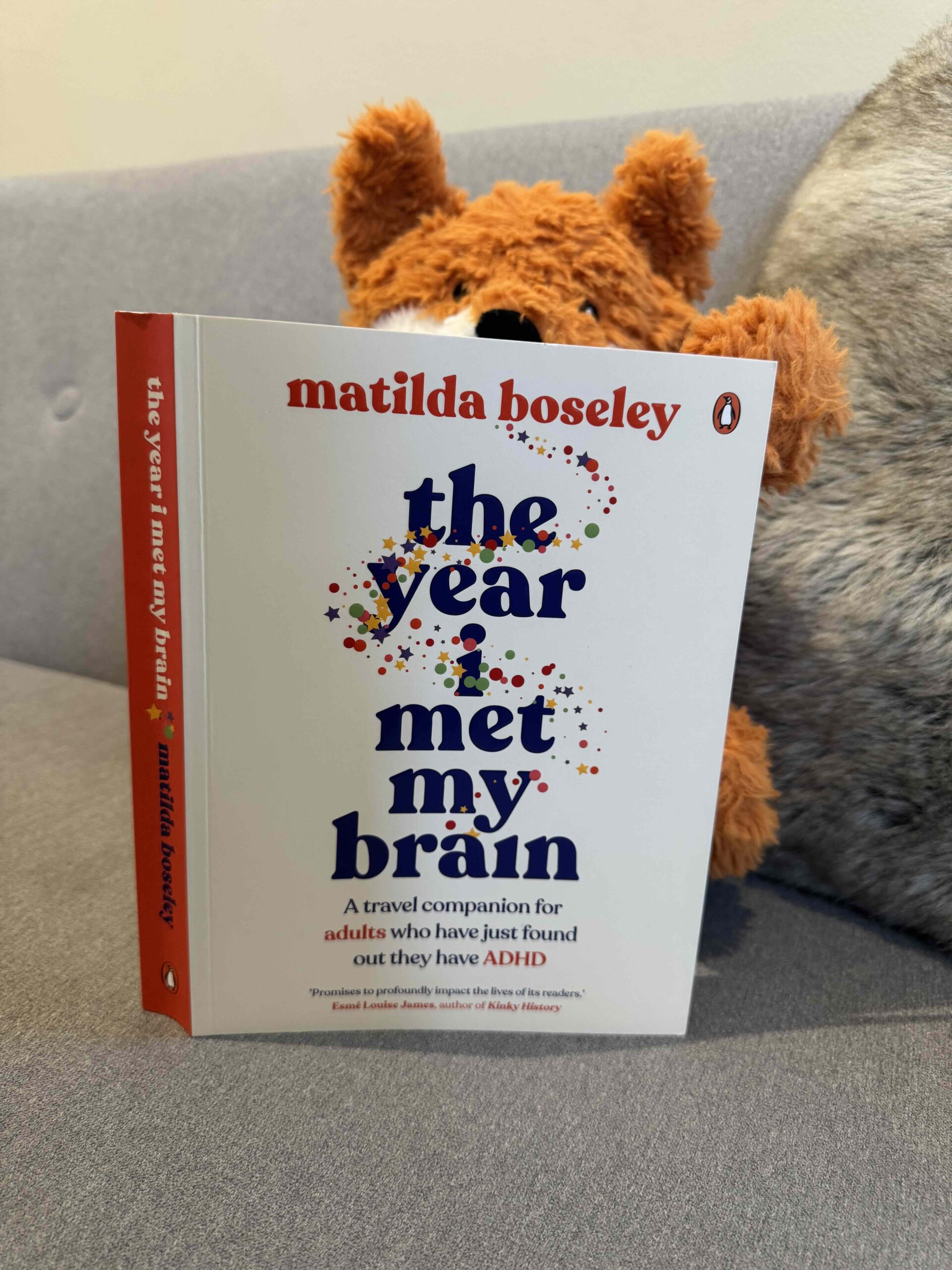The Year I Met My Brain by Matilda Boseley
I suspect that many mental health professionals would agree that there has been a sudden need to upskill in knowledge about neurodivergence over the last five or so years… and fast! Some say that the surge in ADHD diagnosis is social-media-fuelled medicalisation of normal behaviour. Others say that it’s been terribly underdiagnosed, especially in women, and its prevalence is only now becoming realised. What do you think (and why)?
The author of The Year I Met My Brain, Matilda Boseley, describes herself as an award-winning social media reporter and presenter for Guardian Australia. She is also a young woman with, at the time of writing, a recent diagnosis of ADHD, Combined Type. As the title suggests, in this book she takes us with her on a year-long journey of reflection as she re-evaluates her understanding of the way her mind works. It’s very readable, and the author good-humouredly tells many laugh-out-loud stories from her life (just to be clear, I think that was her intention!). However, it’s not hard to see that, behind the smiles, these situations reflect genuine struggle.
There are many books you could choose to read about ADHD. The reason I would choose this as one of them is not for new tips on executive dysfunction (though you will find plenty of these if that’s what you are after), but for the way she addresses what seems to me the deeper challenge of living with this condition: figuring out how to think and feel about yourself, especially when you struggle. So many of the people with ADHD I talk to express the devastating impact on their self-esteem of seemingly getting things ‘wrong’ so often or, worse, somehow being wrong as a human being.
Inside these pages you will meet exhausted Ethel, the personification of an overworked executive functioning system, and gain insight into why it is that sometimes she just can’t quite keep up. You will find a history of ADHD as a diagnosis, and reflections on whether ‘task paralysis’ and other symptoms commonly found on social media are actually ‘things’ (and why/why not). The question of medication, and concerns about overdiagnosis in are considered in a balanced and helpful way. There is also a particularly nice chapter, I thought, entitled, ‘How do I live with other people?’
Ultimately, this a story of a young woman figuring out how to accept herself, and flourish, in a world where her neurotype means she is constantly living her life, as she puts it, on ‘Expert Mode.’ I won’t give away her final insights, but, *spoiler*, in the end Ms Boseley does find a way to think about the workings of her brain that helps her to find improved self-compassion and self-acceptance. Maybe the experiences and thoughts that she shares could help you or someone you love.
Have you read it? What do you think?
The Year I Met My Brain will be sitting in our waiting room for the next month: if you’re a current client you’re welcome to come early to your appointment and have a read with a cuppa, or you can have a quick flick through and decide whether it would be worth investing in to read at home.
-Meg

